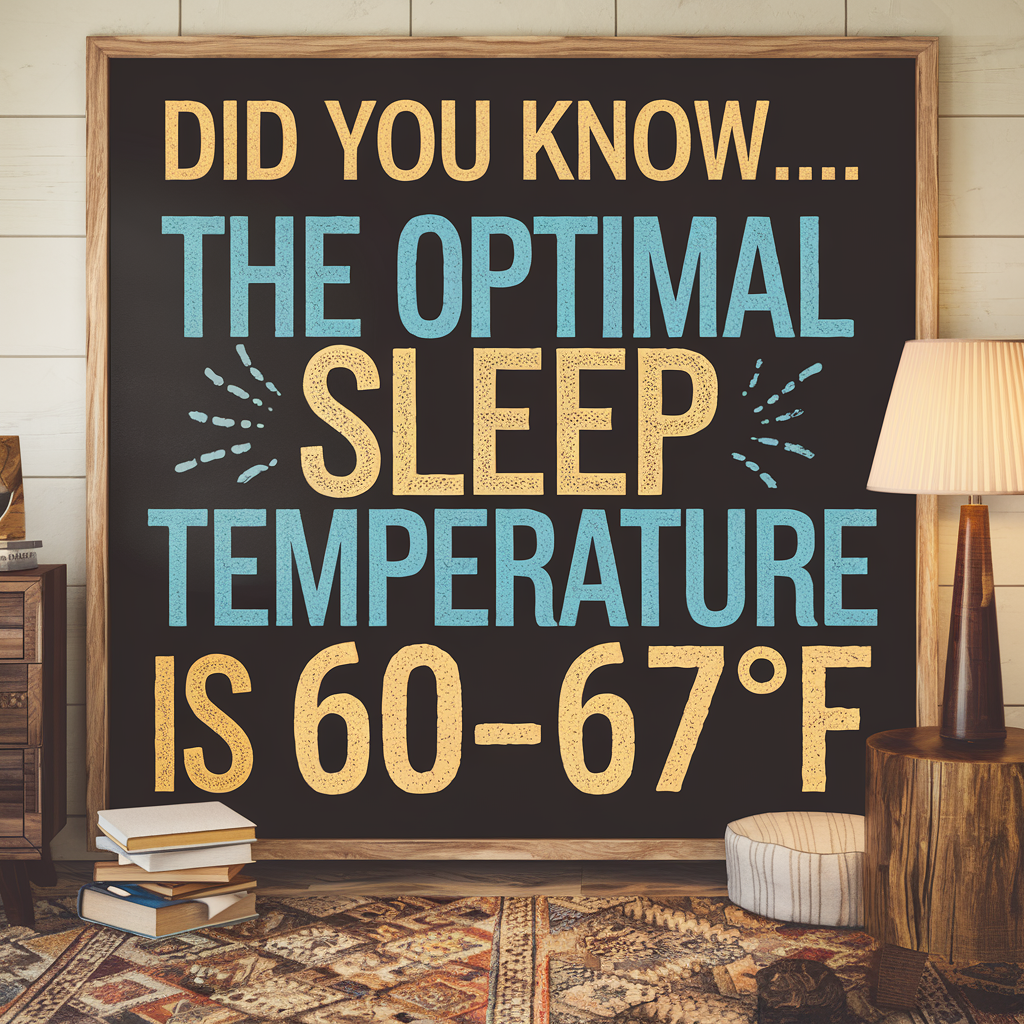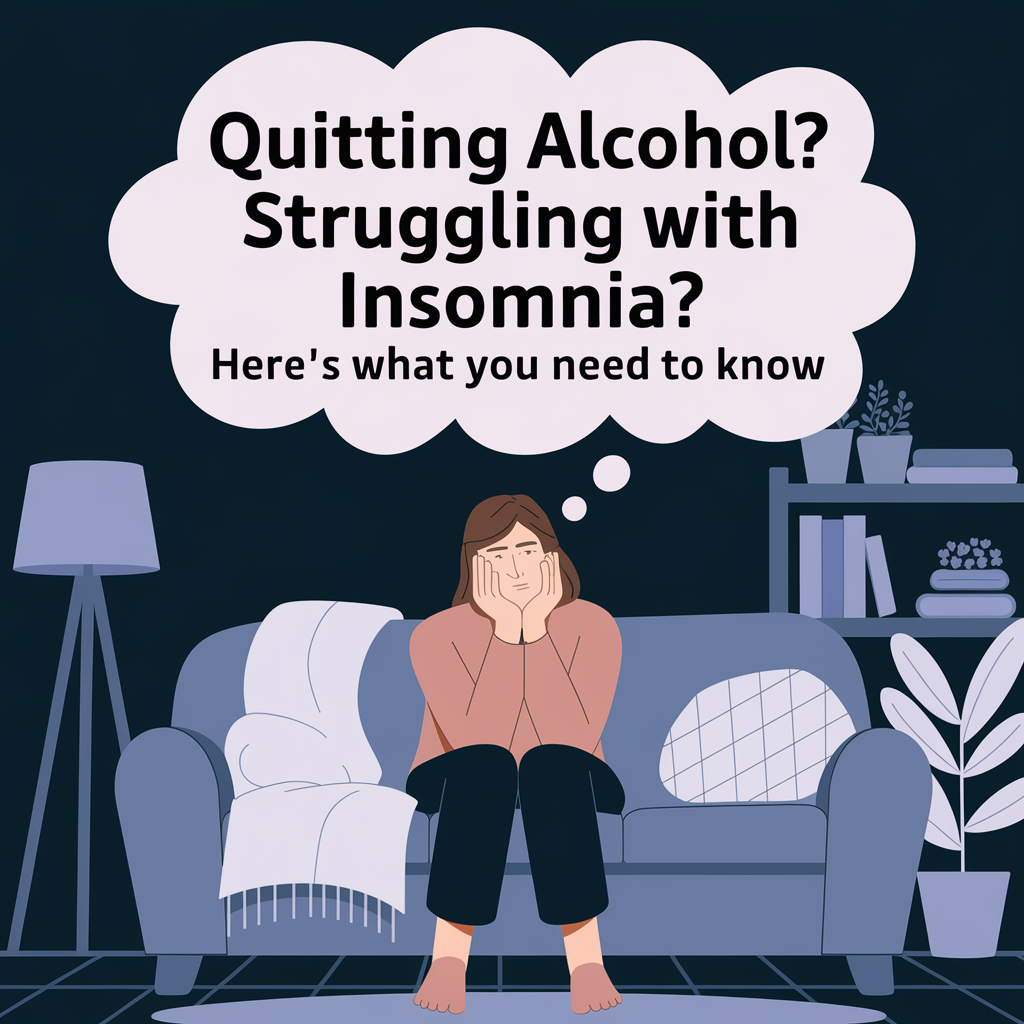
Adrenal Fatigue Insomnia: Why You Can’t Sleep and How to Fix It
Ever find yourself wide awake at 3 a.m., staring at the ceiling, feeling both exhausted and wired at the same time? That, my friend, could be adrenal fatigue insomnia—a frustrating cycle where your body’s stress response is so out of whack that it keeps you from getting the rest you desperately need.
As someone who has battled sleepless nights thanks to adrenal fatigue, I know how soul-crushing it feels. I’d wake up multiple times a night, unable to calm my racing thoughts or shake the feeling that my body just wouldn’t shut down. Eventually, I realized my adrenal glands, the tiny powerhouses that manage stress, were on the fritz. The result? Sleepless nights, relentless exhaustion, and a craving for answers.
In this article, we’re diving deep into adrenal fatigue insomnia: what causes it, how to tell if your adrenals are fatigued, and most importantly, how to fix it so you can finally get some quality sleep. Let’s start with the basics—how to figure out if adrenal fatigue is actually behind your restless nights.
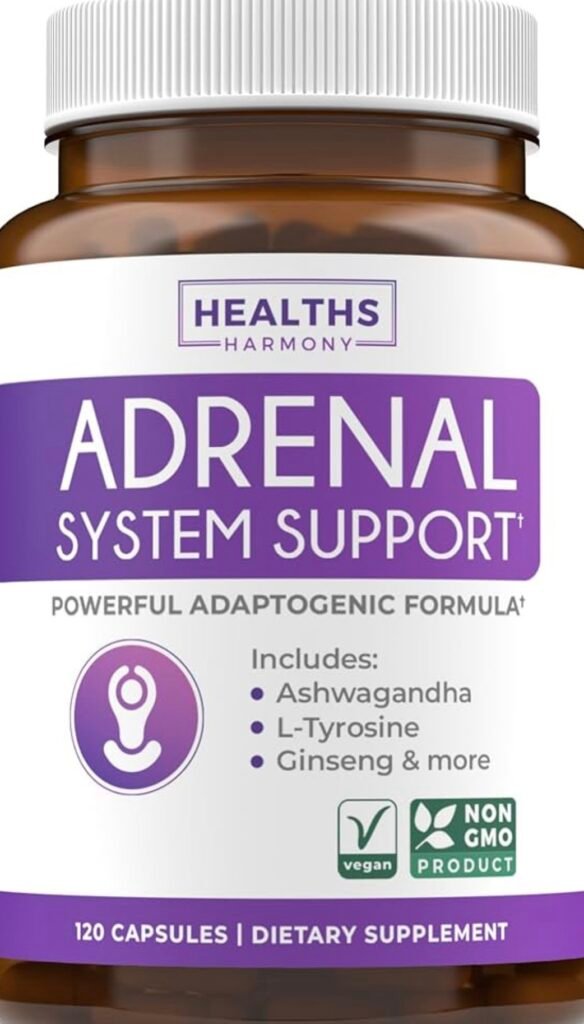
How to Tell If Your Adrenals Are Fatigued
Adrenal fatigue is sneaky. It doesn’t just show up one day waving a red flag—it creeps in slowly, making you feel “off” without knowing why. Your adrenal glands, which produce hormones like cortisol to manage stress, start to struggle under constant pressure, and the ripple effects can mess with your energy, mood, and, yes, your sleep.
Common Symptoms of Adrenal Fatigue
- Constant Fatigue: You feel tired all day, no matter how much sleep you get.
- Wired but Tired: You’re completely drained during the day but suddenly feel alert at night (hello, insomnia).
- Brain Fog: Concentration and memory feel like they’ve taken a permanent vacation.
- Cravings: You find yourself reaching for salty snacks or sugary treats more than usual.
- Morning Struggles: Waking up feels like climbing Mount Everest, but you might get a random energy boost late in the evening.
- Mood Swings: Anxiety, irritability, or feeling “on edge” become frequent visitors.
How to Confirm Adrenal Fatigue
If these symptoms sound painfully familiar, it’s time to dig deeper. While you can’t self-diagnose adrenal fatigue with certainty, you can:
- Track Your Energy Levels: Notice patterns of exhaustion, especially morning fatigue or late-night surges of energy.
- Get Tested: A saliva or blood test for cortisol levels can help confirm if your adrenals are struggling. Consult a doctor or specialist for this.
For a deeper dive into adrenal fatigue and how it impacts your body, check out Adrenal Fatigue: Why You’re So Tired & How to Reverse It.
If you’re nodding along because these symptoms sound all too familiar, let’s tackle one of the most frustrating parts of adrenal fatigue: insomnia. Why does it mess with your sleep so much? Let’s break it down.
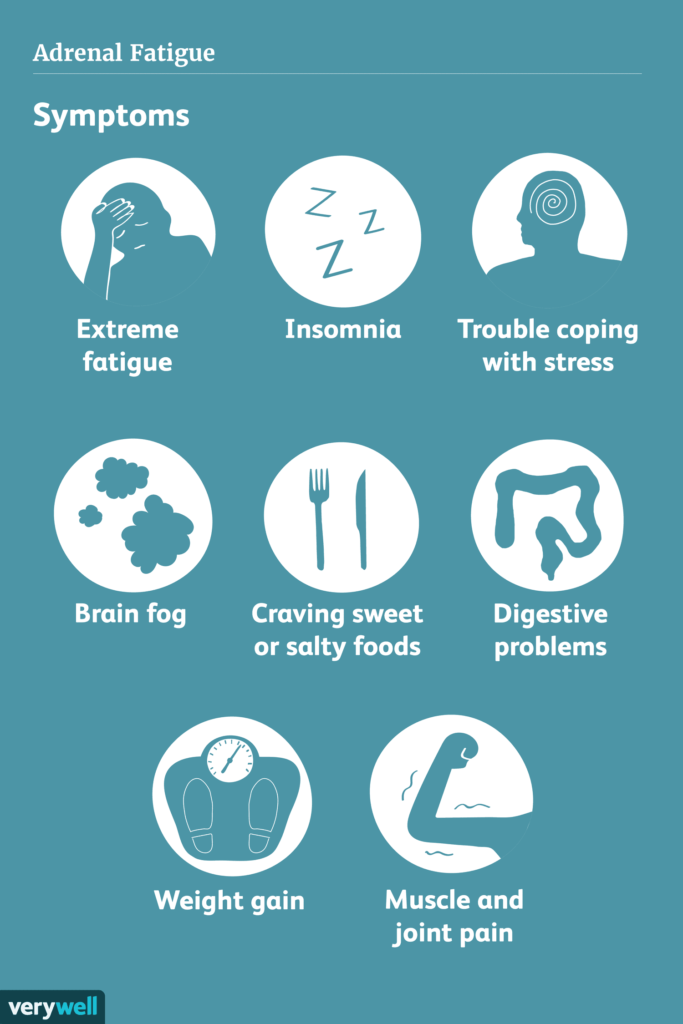
Why Does Adrenal Fatigue Cause Insomnia?
Adrenal fatigue insomnia is a cruel irony: you’re completely drained, yet your body refuses to let you sleep. But why does this happen? It all boils down to cortisol, your body’s stress hormone, and how adrenal fatigue throws its natural rhythm completely out of sync.
How Cortisol Should Work
Under normal conditions, cortisol follows a daily cycle. It’s highest in the morning to help you wake up and gradually decreases throughout the day, reaching its lowest point at night so you can fall asleep. But with adrenal fatigue, that rhythm gets flipped upside down.
What Happens with Adrenal Fatigue?
- Cortisol Spikes at the Wrong Time: Instead of being low at night, cortisol might spike in the middle of the night (hello, 3 a.m. wake-ups). This is why you feel “wired” when you should be sleeping.
- Cortisol Rollercoaster: Your levels might swing wildly during the day, leaving you exhausted in the afternoon but suddenly alert as bedtime approaches.
- Adrenals Overreact: Chronic stress keeps your adrenals in overdrive, flooding your system with cortisol when your body doesn’t need it.
Why the 3 a.m. Wake-Up Call?
Waking up at 3 a.m. is classic for adrenal fatigue sufferers. Here’s what’s likely happening:
- Your blood sugar dips overnight, and your body releases cortisol to correct it.
- That cortisol spike wakes you up—and sometimes brings racing thoughts or anxiety along with it.
I can’t tell you how many nights I spent staring at the ceiling at 3 a.m., wondering what was wrong with me. It wasn’t until I understood the cortisol connection that I could take steps to address it.
For tips on managing sleep cycles and balancing cortisol levels, check out The Ultimate Guide to Overcoming Sleep Issues.
Now that you know why adrenal fatigue messes with your sleep, let’s talk about what you can do to actually sleep better with adrenal fatigue.
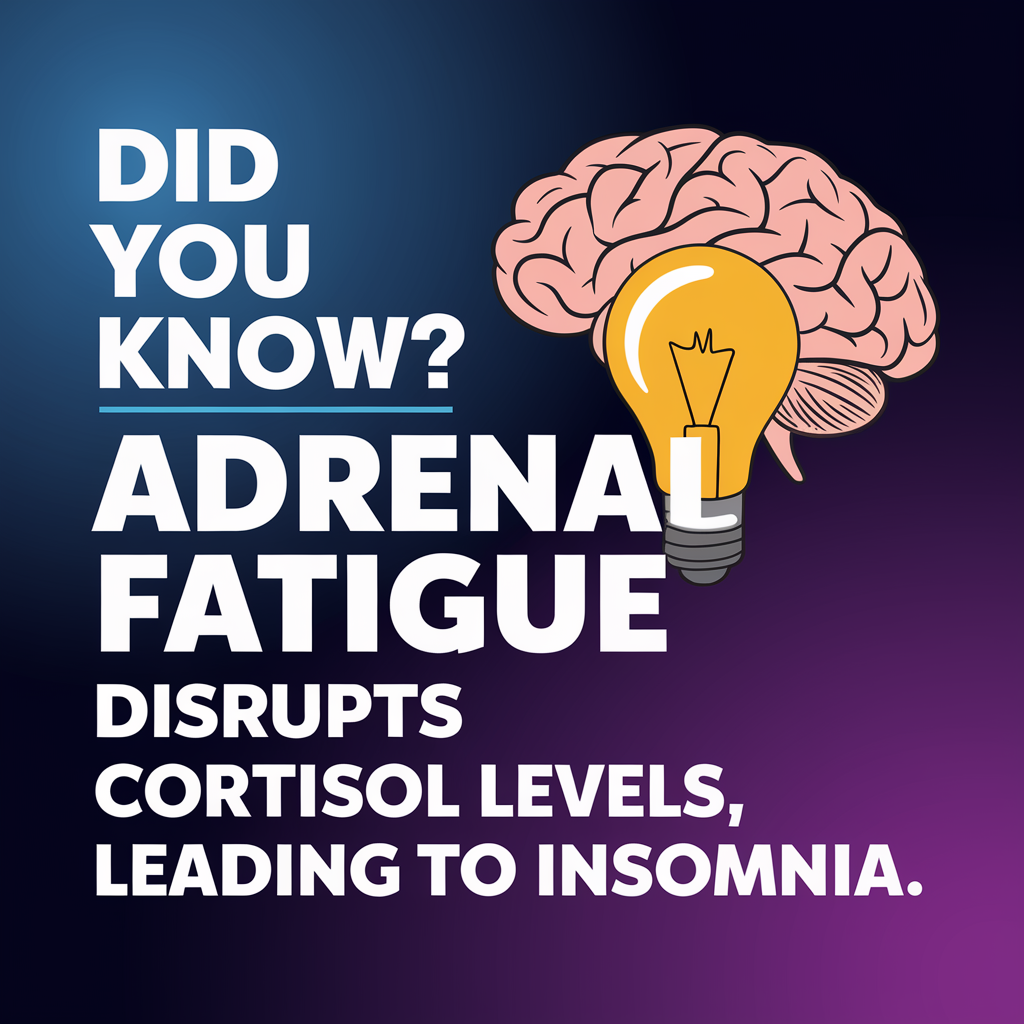
How to Sleep Better with Adrenal Fatigue
Sleeping with adrenal fatigue is like trying to put a toddler to bed after a sugar binge—it feels nearly impossible. But here’s the good news: with the right adjustments, you can calm your body down, balance cortisol levels, and finally start getting the rest you need.
Practical Tips for Better Sleep
- Stick to a Bedtime Routine
Create a wind-down ritual before bed to signal to your body that it’s time to relax. This could include: - Dimming the lights.
- Reading something calming (no doom-scrolling on your phone).
- Taking a warm shower or practicing deep breathing.
The consistency helps your body anticipate sleep. - Support Cortisol Balance with Supplements
Certain supplements can work wonders for adrenal fatigue insomnia. A great option is Adrenal Support & Cortisol Manager, which contains calming herbs like Ashwagandha and L-Tyrosine to regulate cortisol and promote relaxation. I noticed a big difference when I started taking it, especially with staying asleep through the night. - Create a Sleep-Friendly Environment
- Keep your bedroom dark, cool, and quiet.
- Invest in blackout curtains and a white noise machine if necessary.
- Avoid electronics at least an hour before bed (blue light disrupts melatonin production).
- Eat a Bedtime Snack
If you wake up at 3 a.m., it could be due to a drop in blood sugar triggering a cortisol spike. A small protein-rich snack before bed (like almond butter on a cracker) can help keep your blood sugar stable overnight. - Limit Caffeine and Alcohol
These disrupt your natural sleep cycle. Cut back, especially in the afternoon or evening, to avoid fueling the “wired but tired” feeling.
When You Need Extra Help
If these tips don’t fully resolve your insomnia, you might need additional strategies. Say Goodnight to Insomnia and Wake Up Refreshed offers more tools and tips to help manage stubborn sleep issues.
Now that you know how to improve your sleep with adrenal fatigue, let’s take a closer look at what’s happening in the early stages of this condition and why catching it early matters.

What Is Stage 1 Adrenal Fatigue?
Adrenal fatigue doesn’t happen overnight—it progresses through stages, with Stage 1 being the “alarm phase.” This is when your body first starts reacting to chronic stress by overproducing cortisol. Think of it as your adrenals going into overdrive, trying to keep up with the constant demands you’re placing on them.
Symptoms of Stage 1 Adrenal Fatigue
- Wired but Tired: You might feel like you’re running on adrenaline all day, but you’re completely exhausted underneath it all.
- Difficulty Relaxing: It’s hard to “turn off” your brain, especially at night.
- Trouble Falling Asleep: Even when you’re tired, it feels like your body is stuck in overdrive.
- High Cortisol Levels: In this stage, cortisol production is high, especially during times when it should be low, like at night.
Why It’s Important to Address Stage 1
The “alarm phase” might not feel too bad—you may even think you’re just “busy” or “wired.” But this is the critical point where intervention can stop things from getting worse. If left unchecked, your adrenals can move into the later stages of fatigue, where they’re no longer able to keep up, leading to even more severe symptoms like extreme exhaustion and immune issues.
What Can You Do in Stage 1?
- Prioritize Rest: This is the time to work on your sleep hygiene and stress management (see the previous section for tips).
- Adopt a Healthy Diet: Cut back on sugar and processed foods, which can worsen cortisol imbalances.
- Use Supportive Supplements: Taking a supplement like Adrenal Support & Cortisol Manager can help regulate cortisol levels and prevent further adrenal strain.
Catching adrenal fatigue early makes a huge difference in recovery time. Let’s move on to something everyone asks: how to recover from adrenal fatigue as quickly as possible.

What Is the Fastest Way to Cure Adrenal Fatigue?
Recovering from adrenal fatigue isn’t an overnight process (I wish it were), but there are steps you can take to speed up the healing. The key? Addressing the root cause—chronic stress—while supporting your body’s ability to recover. Think of it as giving your adrenals a well-deserved vacation.
Step 1: Reduce Stress
Stress is the main driver of adrenal fatigue, so managing it is essential. Here’s what helps:
- Daily Relaxation Practices: Try meditation, yoga, or deep breathing exercises to calm your nervous system.
- Set Boundaries: Overworking or overcommitting is a fast track to burnout. Say “no” more often and prioritize rest.
- Get Enough Sleep: Poor sleep only makes adrenal fatigue worse. Follow the tips from the “How to Sleep Better with Adrenal Fatigue” section to create a consistent bedtime routine.
Step 2: Support Your Body with Nutrition
Your diet plays a huge role in adrenal recovery. Here’s what to eat (and avoid):
- Focus on Whole Foods: Incorporate protein, healthy fats, and complex carbs to stabilize blood sugar and support energy.
- Cut Out Junk: Say goodbye to refined sugars, processed snacks, and excessive caffeine. These spike cortisol levels, which is the last thing your adrenals need.
- Hydrate with Electrolytes: Coconut water or a pinch of sea salt in your water can replenish minerals your adrenals crave.
Step 3: Use Targeted Supplements
Supplements can fast-track recovery by providing the nutrients your adrenals need. Some of the most effective include:
- Adrenal Support & Cortisol Manager: This supplement combines stress-reducing herbs like Ashwagandha with adrenal-supporting nutrients like L-Tyrosine, helping balance cortisol levels and promote relaxation.
- Vitamin C: A powerful antioxidant that supports adrenal function and helps reduce stress.
- Magnesium: Promotes relaxation and better sleep, which is vital for recovery.
Step 4: Move Your Body Gently
Exercise is important, but overdoing it can worsen adrenal fatigue. Opt for low-impact activities like walking, stretching, or light yoga instead of intense workouts.
Recovering from adrenal fatigue is a process, but by focusing on stress reduction, proper nutrition, and supplements, you can start feeling better sooner. Speaking of stress, let’s tackle one of the most common frustrations of adrenal fatigue: waking up at 3 a.m. Let’s figure out why it happens—and how to stop it.

Why Do I Wake Up at 3 a.m. with Adrenal Fatigue?
If you’re dealing with adrenal fatigue, waking up at 3 a.m. feels like a cruel joke. You’re exhausted, you need rest, and yet here you are—wide awake, staring at the clock, trying to figure out what went wrong. The good news? You’re not crazy, and this isn’t random. There’s a scientific reason behind it.
The Cortisol Spike at Night
Your body has a natural rhythm called the circadian rhythm, which governs cortisol production. Normally, cortisol is at its lowest in the middle of the night, allowing for deep, uninterrupted sleep. But with adrenal fatigue, that rhythm is disrupted.
Here’s what happens:
- Low Blood Sugar Triggers Cortisol: Around 3 a.m., your blood sugar might dip too low (common with adrenal fatigue). Your body sees this as a stress signal and pumps out cortisol to stabilize it. Unfortunately, that cortisol spike wakes you up, sometimes with racing thoughts or a feeling of alertness.
- Adrenal Dysregulation: With fatigued adrenals, your cortisol levels may already be imbalanced, causing exaggerated spikes at the wrong times, like the middle of the night.
How to Stop the 3 a.m. Wake-Up
- Eat a Bedtime Snack: Have a small snack with protein and healthy fat before bed. Something like a spoonful of almond butter or a slice of turkey can help keep your blood sugar stable overnight.
- Magnesium for Relaxation: Take a magnesium supplement or soak in an Epsom salt bath before bed. Magnesium helps relax your body and supports adrenal recovery.
- Cortisol-Balancing Supplements: A product like Adrenal Support & Cortisol Manager can help regulate cortisol levels and prevent those late-night spikes.
- Manage Evening Stress: Avoid stimulating activities at night, like scrolling through your phone, watching intense TV shows, or working late. Calming activities like journaling or stretching can help lower cortisol before bed.
A Practical Step: Keep It Dark
If you do wake up at 3 a.m., avoid turning on any lights or looking at screens. Blue light can suppress melatonin production and make it harder to fall back asleep.
For additional sleep tips, check out The Best Sleep Position to Help Manage Sleep Apnea Naturally.
Waking up in the middle of the night can feel defeating, but these strategies can help you regain control of your sleep. Next, let’s address a key factor in adrenal fatigue recovery—what you eat. Or more specifically, what you shouldn’t eat.
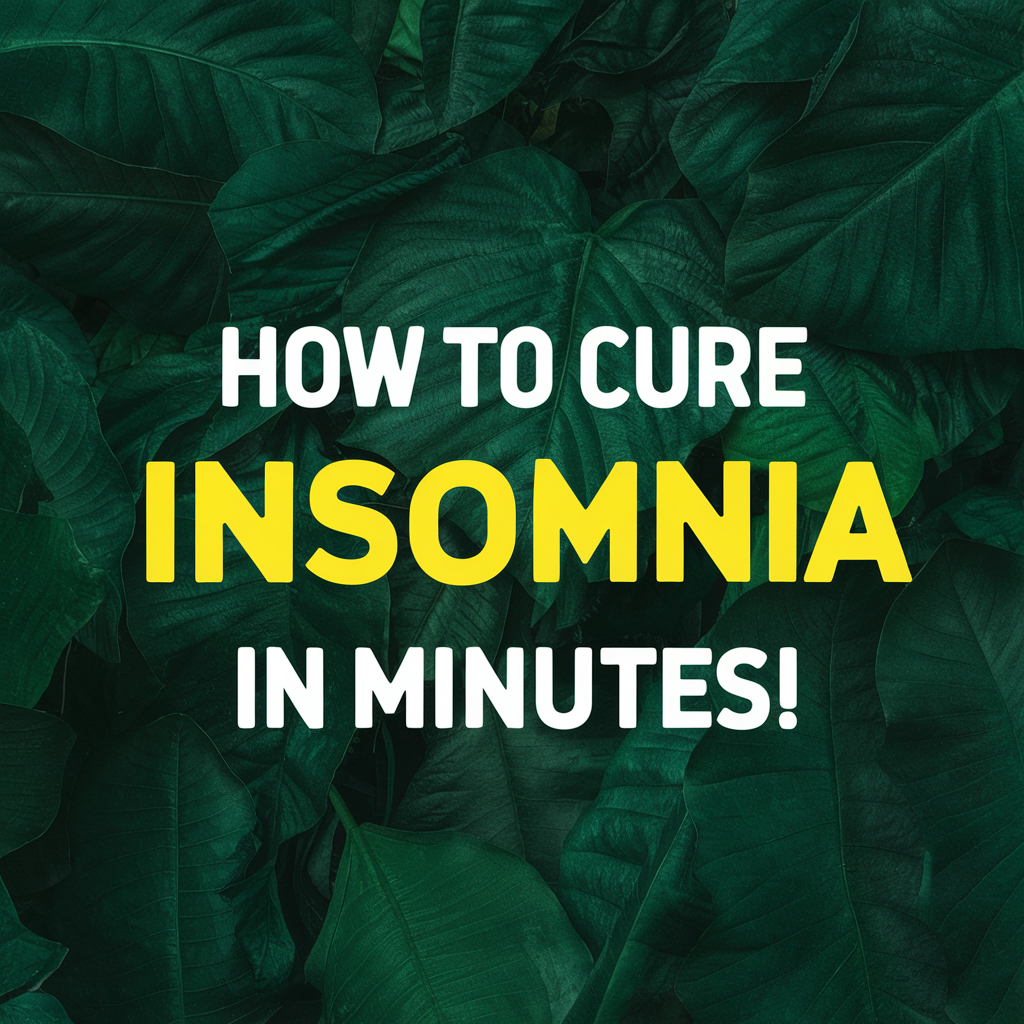
What Are the Worst Foods for Adrenal Fatigue?
When you’re dealing with adrenal fatigue, what you put on your plate can either help you recover or make things worse. Certain foods stress your adrenals even further, keeping you trapped in that “wired but tired” cycle and worsening your insomnia. Trust me, I’ve been there—grabbing sugary snacks just to stay awake, only to crash hard later.
Here’s a list of the biggest offenders:
Foods to Avoid with Adrenal Fatigue
- Refined Sugars and Processed Carbs
- Sugar and simple carbs (think pastries, soda, and white bread) cause blood sugar spikes and crashes, which can trigger cortisol surges.
- These crashes are often the culprit behind that dreaded 3 p.m. slump or restless nights.
- Excessive Caffeine
- Your morning coffee isn’t the villain, but overdoing it is. Too much caffeine forces your adrenals to pump out more cortisol, which can worsen fatigue in the long run.
- If you’re relying on multiple cups a day to function, it’s time to cut back.
- Alcohol
- Alcohol disrupts your sleep cycles, making adrenal fatigue insomnia even worse. It also increases your body’s need for cortisol to process it, which can throw your hormones further off balance.
- Processed Foods with Additives
- Highly processed snacks and fast food are loaded with preservatives and artificial ingredients that add unnecessary stress to your adrenals.
Healthier Alternatives to Support Adrenal Recovery
- Whole Foods: Stick to whole grains, lean proteins, healthy fats, and fresh vegetables. These provide steady energy and support balanced blood sugar levels.
- Herbal Teas: Swap out that afternoon coffee for calming teas like chamomile, peppermint, or licorice root (an adrenal-supporting herb).
- Protein-Rich Snacks: Reach for nuts, seeds, or boiled eggs instead of sugary granola bars.
Changing your diet may feel overwhelming at first, but every small step makes a big difference in how your body feels. The next time you’re about to reach for a sugary pick-me-up, remember: fueling your body the right way will pay off with better energy and deeper sleep.
Now that we’ve covered what not to eat, let’s dive into the best vitamins for adrenal fatigue recovery and how they can help you heal.
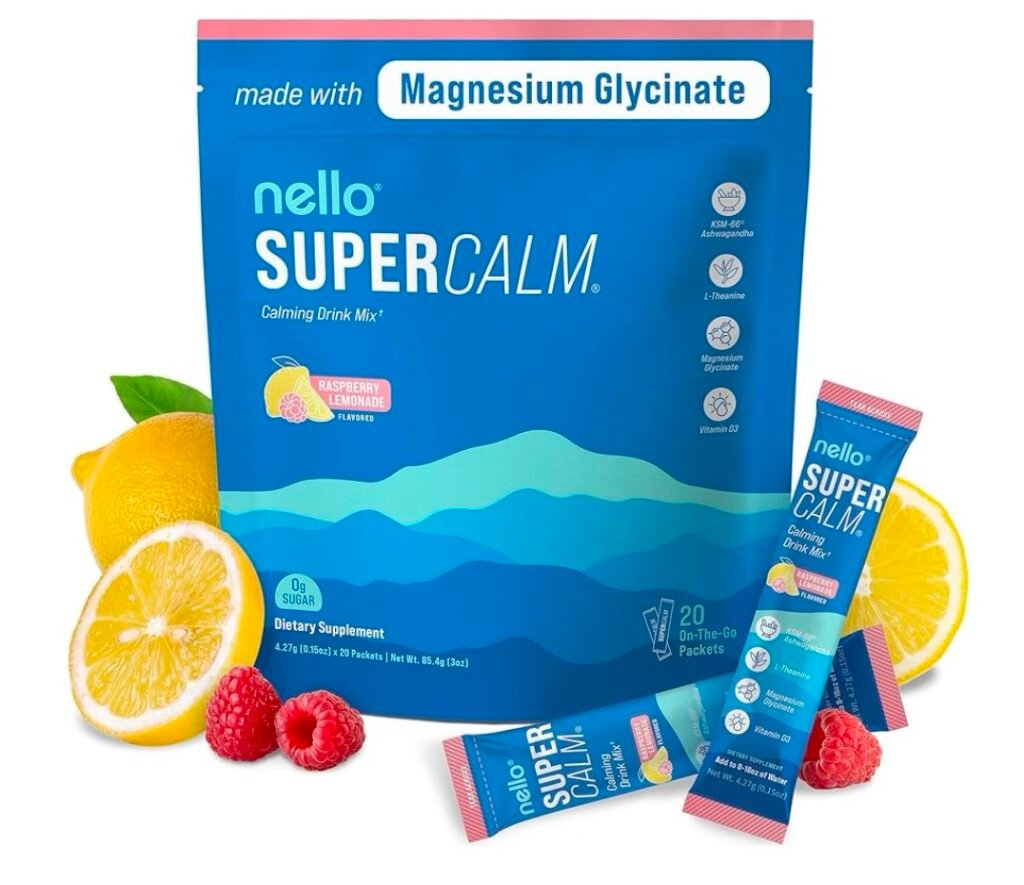
What Is the Best Vitamin for Adrenal Fatigue?
If your body is running on empty thanks to adrenal fatigue, certain vitamins and nutrients can help you recharge and recover. Think of them as the fuel your adrenals need to function properly and handle stress without going into overdrive. After experimenting with supplements and researching the science behind adrenal recovery, here’s what I’ve found to be the most effective.
Top Vitamins and Nutrients for Adrenal Fatigue
- Vitamin C
- Your adrenal glands use more Vitamin C than any other organ in your body. It helps regulate cortisol production and supports your immune system, which often takes a hit when your adrenals are struggling.
- Foods like oranges, bell peppers, and strawberries are great sources, or you can take a high-quality supplement.
- B-Complex Vitamins
- B vitamins, especially B5 (pantothenic acid) and B6, are essential for energy production and adrenal function. They help your body cope with stress and reduce feelings of fatigue.
- Look for a complete B-complex supplement to cover all your bases.
- Magnesium
- Known as “nature’s relaxer,” magnesium helps calm your nervous system and improve sleep quality. It’s also great for soothing muscle tension that can build up from chronic stress.
- Taking a magnesium supplement or soaking in an Epsom salt bath before bed can do wonders for both your stress levels and sleep.
- Zinc
- Zinc supports adrenal health by helping regulate hormone production and strengthening your immune system. Pumpkin seeds, beef, and chickpeas are good food sources if you’re not into pills.
Herbs and Supplements to Pair with Vitamins
In addition to vitamins, certain adaptogenic herbs can help your body adapt to stress and recover faster. A great option is Adrenal Support & Cortisol Manager, which contains Ashwagandha and L-Tyrosine to support cortisol balance and promote relaxation. I personally noticed a huge improvement in my energy and sleep quality after adding this to my routine.
Pro Tip: Prioritize a Balanced Diet
While supplements are helpful, they work best alongside a nutrient-rich diet. Focus on whole foods packed with vitamins and avoid relying solely on pills to do the job.
With the right vitamins and supplements, your adrenals can recover faster, and you’ll notice more energy, less stress, and—most importantly—better sleep. Let’s wrap up with a few additional tips to manage adrenal fatigue insomnia and set yourself up for long-term recovery.
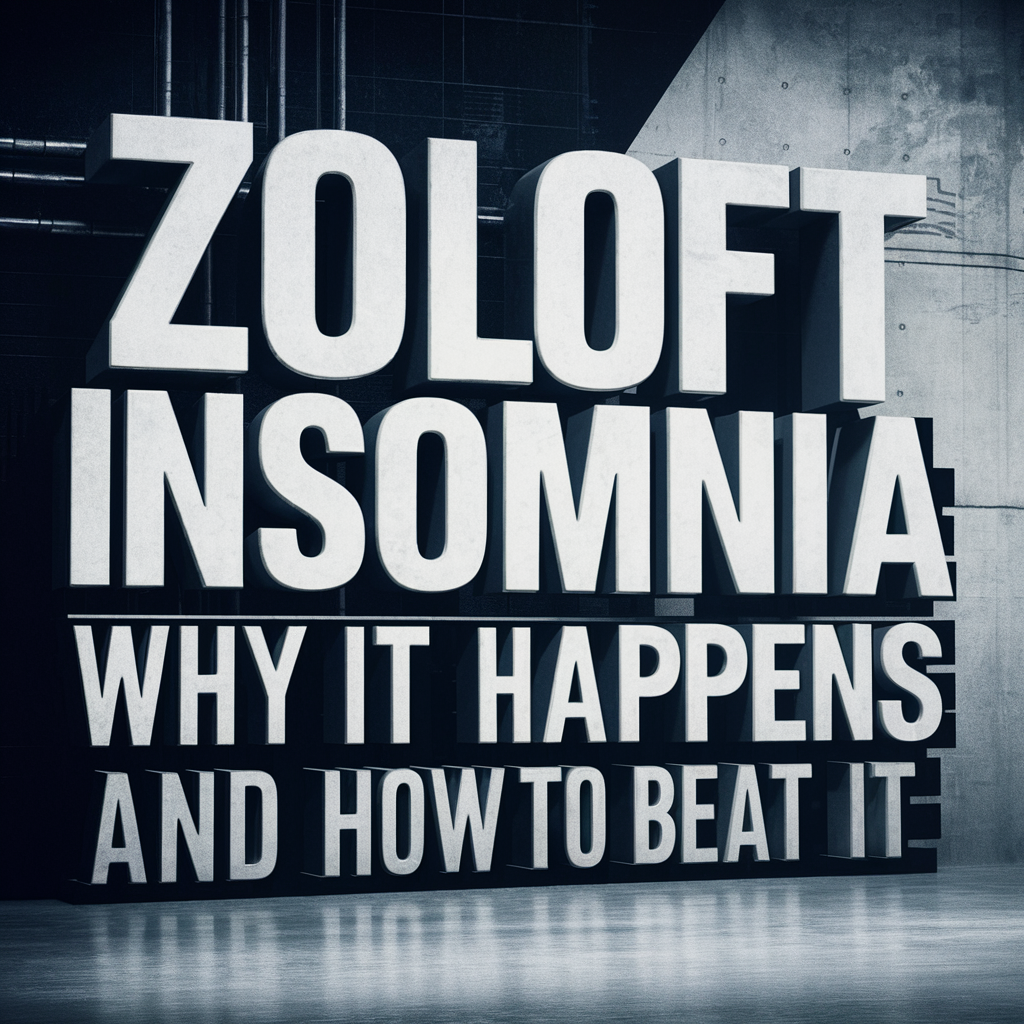
Additional Tips to Manage Adrenal Fatigue Insomnia
If you’ve made it this far, you’re already taking steps toward better sleep and adrenal health—but let’s fine-tune your approach with a few additional tips. These strategies can help you manage adrenal fatigue insomnia more effectively and support your overall recovery.
1. Exercise—But Don’t Overdo It
Movement is essential for stress relief, but when your adrenals are fatigued, less is more.
- Low-Impact Activities: Walking, gentle yoga, or stretching are great ways to reduce stress without exhausting your body.
- Avoid Overtraining: Intense workouts can spike cortisol, which is the opposite of what your adrenals need right now.
2. Manage Evening Light Exposure
- Blue light from screens can suppress melatonin, making it harder to fall asleep. Avoid phones, laptops, and TVs at least an hour before bed.
- Use dim, warm lighting in the evening to encourage melatonin production.
3. Journaling or Gratitude Practice
If racing thoughts keep you up at night, try journaling before bed. Write down what’s on your mind or list a few things you’re grateful for. It helps clear mental clutter and creates a sense of calm.
4. Consider a Sleep Aid
Sometimes, you need extra help. While over-the-counter sleep aids can work short-term, natural solutions like Adrenal Support & Cortisol Manager offer stress relief and help regulate cortisol to promote better sleep.
5. Focus on Long-Term Stress Management
Recovering from adrenal fatigue insomnia isn’t just about fixing your sleep—it’s about breaking the stress cycle that caused it in the first place.
- Incorporate meditation, breathing exercises, or even hobbies that bring you joy.
- Remember, stress management is a skill that takes practice—but it pays off in the long run.
Additional Resources for Better Sleep
For more sleep advice, check out The Ultimate Guide to Overcoming Sleep Issues. It’s packed with practical tips and product suggestions to help tackle insomnia.
Taking these extra steps can make a big difference in managing adrenal fatigue insomnia. With patience and the right tools, you can reclaim your sleep and start feeling like yourself again. Now, let’s pull everything together with a final recap.
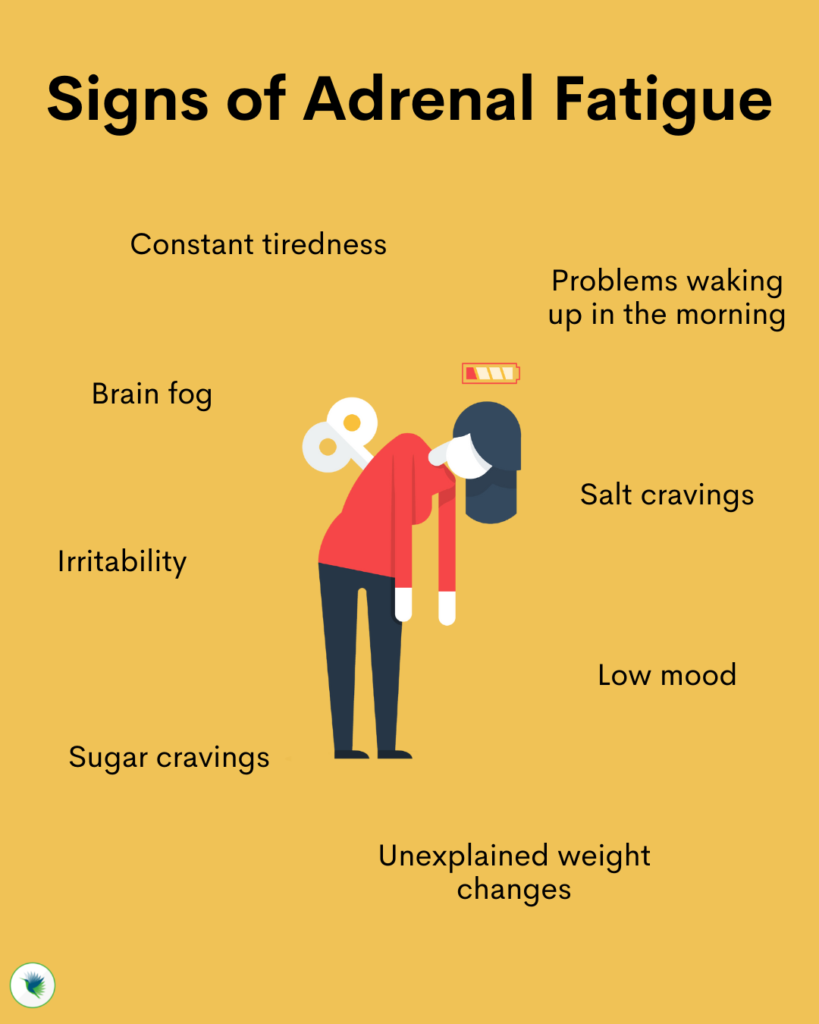
Winning the Fight Against Adrenal Fatigue Insomnia
Adrenal fatigue insomnia can leave you feeling trapped in an endless cycle of exhaustion, sleepless nights, and frustration. But here’s the good news: recovery is absolutely possible. By addressing the root causes, rebalancing your cortisol levels, and adopting healthy sleep habits, you can start to feel like yourself again.
To recap, here’s how you can tackle adrenal fatigue insomnia:
- Identify the Symptoms: If you’re constantly tired, waking up at 3 a.m., or craving sugar, your adrenals might be calling for help.
- Fix Your Sleep Routine: Establish consistent bedtime habits, eat a light protein-rich snack before bed, and create a sleep-friendly environment.
- Balance Your Diet: Avoid caffeine, sugar, and processed foods, and prioritize whole foods that support adrenal health.
- Use the Right Supplements: Products like Adrenal Support & Cortisol Manager can help regulate cortisol levels and improve your sleep naturally.
- Manage Stress: Practice relaxation techniques like yoga, meditation, or journaling to break the cycle of chronic stress.
Remember, adrenal fatigue doesn’t develop overnight, and recovery takes time. Be patient with your body, and focus on small, consistent steps. Whether it’s cleaning up your diet, sticking to a better bedtime routine, or supporting your adrenals with vitamins and supplements, every effort adds up.
For more tips on adrenal health and better sleep, check out:
- Adrenal Fatigue: Why You’re So Tired & How to Reverse It
- Say Goodnight to Insomnia and Wake Up Refreshed
- The Ultimate Guide to Overcoming Sleep Issues
Adrenal fatigue insomnia doesn’t have to control your life. Take charge, listen to your body, and give it the support it needs. You’ve got this!
As an Amazon Associate we earn from qualifying purchases through some links in our articles.
